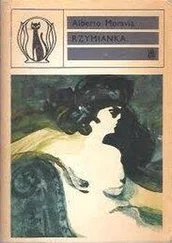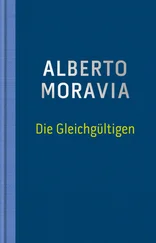He realized that until bumping into Maurizio, he had simply followed his natural inclinations, without reacting in any way, and perhaps, deep down, this had given him a sense of self-satisfaction. But as soon as he saw his friend, everything changed. He could have simply rejected the offer out of hand, preferring his inertia. But this too would have been a decision, albeit one in consonance with his behavior up to that point. In any case, he had not done so; almost against his will, he had expressed his objections in terms of dignity and courage. His objection had replaced his previous state of inertia with something new, a choice between two temptations: cowardice and courage. In reality he was neither cowardly nor courageous but simply undecided. But because his response implied courage, it placed him in an awkward position. If he accepted Maurizio’s offer and revealed his objections to be false, he would be behaving like a coward.
After much reflection, he came to the conclusion
180
that the one thing he was sure of was the fact that that his inertia could not last, and that when a man does not actively place himself at a crossroads which requires some kind of action, reality does it for him by confronting him with the need to act. In this case, the call to action had been Maurizio’s invitation to come with him to Capri. Sergio had not sought out his friend, and their meeting had been the fruit of chance. But the casual nature of their meeting, and Sergio’s lack of foresight, confirmed the impossibility of a continued inertia. Sergio was convinced that if Maurizio had not invited him to come along, something else would have presented itself, another external factor that would have forced him to make a choice: the Fascists, the Germans, the anti-Fascists, his family, or something else. Reality would not allow anyone to stand on the sidelines, even someone who was consumed by regret and anxiety. The time for intervention and action had arrived, inevitably.
The trouble was that his response to Maurizio, with its allusions to courage and dignity, had come to him without any previous reflection or basis in any particular sentiment. It had poured out of him, probably as the result of a conventional manner of thinking which he had engaged in without reflection, almost automatically. The proof of this was that once he was alone he realized that he had spoken without conviction, as if playing the role of the person he wished to be but was not. In a way, the words were simply an extension of Maurizio’s, just as a color finds definition only when contrasted with another. Here, once again, was proof of how much stronger Maurizio was, in his careless way, than he. Either way the words meant little and did not represent any concrete reality, even one that was still imprecise and obscure.
That said, the next twenty-four hours, conceded by
181
Maurizio — or rather accepted by Sergio — would have to lead to some sort of decision. Toward evening, just before dinner, a young man he had recently befriended came to visit. His name was Federico. He was delicate and very tall, with a wan face and red-rimmed eyes. Judging by his unhealthily purple cheeks, he might be suffering from tuberculosis. Unlike Sergio, he was, or at least seemed to be, enthusiastic and fully engaged in whatever subject concerned him at the moment. Although he stuttered nervously and lacked eloquence, Federico could communicate his ardor because of the vehemence and passion with which he expressed, or attempted to express, himself. When he arrived, Sergio was lying on his bed. Federico immediately confronted him with a proposal: he and a group of friends had taken over the offices of a minor Fascist publication and were planning to continue publishing a newspaper reflecting the new political reality of July 24. What he was proposing was to publish anti-Fascist, anti-Nazi propaganda, under the very nose of the Germans who were still fighting on the side of Italy and practically occupied the country. Sergio wrote with ease and eloquence, as demonstrated by his occasional articles, and they knew where his sympathies lay; why not write for this newspaper, which could have an enormous influence, especially on younger people? Stammering, coughing, and periodically becoming distracted as he described the particulars of the project, Federico concluded in a peremptory fashion: “Before you answer, let me warn you that you can’t say no. Otherwise, you’ll be playing into the hands of certain people — and they are in the majority — who say you are indecisive, or worse.”
“What do you mean, worse?”
“A coward,” Federico said, without hesitation.
For a moment, Sergio considered trying to explain his inertia, his morbid fascination with ruin and decadence, and his inability to take vigorous, unambiguous action. But then he realized that such an explanation would have been interpreted as a pretext
182
to conceal that which his detractors called cowardice. Once again, reality had found him, taken him by the neck, and forced him to make a decision. “In essence,” Sergio reflected during the short silence that followed, “I find myself faced with two proposals, Federico’s and Maurizio’s, equally extreme, and equally extraneous to me. I have no reason — no solid, profound reason — to choose one over the other, and my choice will inevitably be determined by extraneous, impersonal factors. The only thing I am inclined to do is nothing at all, but if I say this I will be judged falsely by both Maurizio and Federico. The first will think that I refuse to act because, as I inadvertently implied earlier, I want to be a hero; the second will believe that if I do not accept his proposal it is because I am a coward. Neither coward nor hero, I am nevertheless forced to choose, because the only attitude that comes naturally to me has been compromised by my imprudent comment. And given that I would rather not follow Maurizio’s lead — though I’m not sure why — I am forced to do the opposite. Therefore, I will accept Federico’s proposal.”
These reflections lasted only a few seconds. Then, with a slight feeling of falseness, Sergio said: “You don’t need to twist my arm … I accept, I’ll do it.”
Federico threw his arms around Sergio’s neck, exclaiming that he had never believed that he would turn him down. The two young men immediately began to discuss ideas for Sergio’s articles; Sergio proposed a subject, which Federico approved with his usual enthusiasm. Sergio promised to bring the article to the offices by midnight and, bubbling over with enthusiasm, Federico left him to his task.
As soon as he had left, Sergio went to the telephone to call Maurizio. He almost regretted his decision, which felt somewhat random.
Maurizio did not let him finish: “You’ll come to regret
183
your decision, you’ll see … but do as you please, it’s your business after all.” But after saying good-bye and wishing his friend a good summer, Sergio noticed that he felt relieved. The fact that he had come to a decision, no matter how little conviction he felt, still came as a relief, even if it should turn out to be a temporary solution. In any case, the complications would come later, since every decision leads to innumerable others.
After hanging up, he got down to work. The heat was suffocating in the little room, and the smoke of many cigarettes hung in the air, even with the window open; the cloud of smoke seemed to be pushed inward by a mass of air even more dense and foul than the air inside. But at that moment, for some reason, Sergio felt almost stimulated by his uncomfortable circumstances. He sat down at his little table and began to write the article on a rickety old portable typewriter. As he typed, he became aware that he was thinking obsessively about Maurizio and his trip to Capri. He imagined the immense expanse of blue sea, luminous and overflowing with freedom; he could see his life on the island, protected from the surprises of the war, an oasis of calm amid the drama. The life he imagined was that of an idle spectator rather than a man of action. He realized that as he pictured each additional detail, the tone of his article darkened, his accusations becoming ever more uncompromising and decisive. He thought: at last he was reacting. As always it was the rivalry with Maurizio that drove him. Their meeting in the street and the way Maurizio lived his life, his offer of an escape to Capri, now felt like a distant memory. Maurizio’s ghost held out temptations to him which he had instinctively rejected — how else to explain his unaccountable, spiteful response? This idea calmed him, and after a pause, he continued to write without stopping until he had finished the article. Meanwhile, his sister had stopped in his doorway several times to ask, in the mournful, contrite tone his family always used with him, whether he would be joining them for dinner. Each time he told her that he was too busy.
Читать дальше












